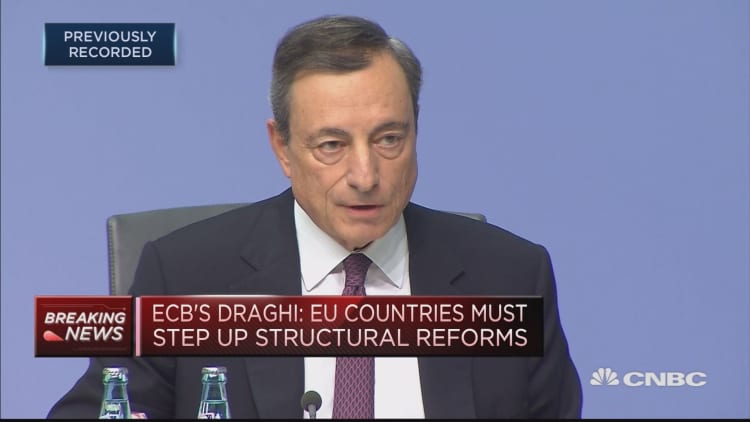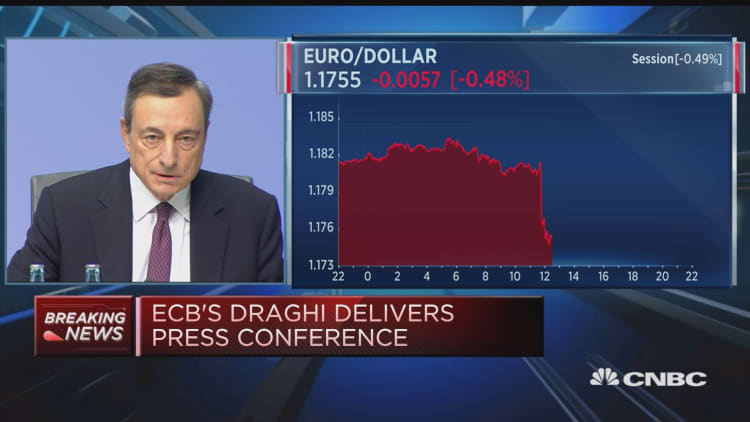
The euro has continued its fall against the dollar after the European Central Bank (ECB) announced plans to trim its monthly asset purchase program.
Crucially, the bank also noted that the program could be extended again if necessary.
The ECB has been running its bond buying at a pace of 60 billion euros ($70 billion) per month as the central bank attempted to stoke growth and inflation among euro zone member countries. The central bank announced Thursday that the bank will now extend the program from January at a pace of 30 billion euros until at least September 2018.
Shortly after 10.00 a.m. New York time the euro was down 0.76 percent for the session. It has since fallen further to sit around one percent lower.
Carsten Brzeski, a chief economist at ING, said in a note that the central bank had announced a "gentle exit" from its quantitative easing (QE) program. The economist explained that the ECB wants to start the exit as cautiously as possible, without seeing the euro appreciate or bond yields increase.
Brzeski noted that the ECB will continue to re-invest the proceeds it gets from buying debt and had reaffirmed that interest rate levels would not move until well after the end of its asset purchase program.
European economist at Capital Economics, Jessica Hinds, said the fact that the ECB did not announce a definitive end date to its asset-purchase program was contrary to some expectations.
Hinds added that with no certainty over when the ECB's bond buying would end, interest rates for the euro zone were likely to stay on hold until at least March 2019.
Market tantrum?
Analysts at Citi Research said in a note earlier this month that the ECB's aim is to taper the asset purchase program without causing a "market tantrum." Citi concluded that the neutral level of quantitative easing (QE) that the ECB could introduce while maintaining market calm was around 250 billion euros in total.

Citi added that the size of the monthly purchases would provide a signal to investors on whether QE is most likely to come to a hard stop or be open to continuation.
"For example, 20 billion euros per month would imply that QE could immediately end once the extension is complete. In contrast, 40 billion euros per month is far more likely to require a further taper," said the note.


